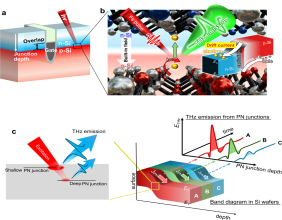Highlights:
- Escalation of U.S.-China Tech Tensions: A second Trump term could intensify trade disputes with China, affecting supply chains for key tech companies.
- FTC Antitrust Policies in Focus: Election outcomes could shape the future of FTC Chair Lina Khan’s regulatory stance on Big Tech monopolies.
- Mixed Outlook for Tesla and EV Subsidies: Potential changes in EV policy could have complex implications for Tesla’s growth and consumer perception.
The upcoming U.S. presidential election holds significant implications for the tech sector, with potential impacts on major corporations like Apple Inc. (NASDAQ:AAPL, ETR:APC), Nvidia Corp. (NASDAQ:NVDA, ETR:NVD), and Tesla Inc. (NASDAQ:TSLA). As analysts and investors look to the political landscape for clues, the election’s outcome could alter the trajectory of the technology sector, influencing regulatory approaches, trade relationships, and even specific policies for emerging technologies.
Wedbush analyst Daniel Ives highlighted that Wall Street is closely watching the election, particularly because of its implications for U.S.-China trade tensions and Federal Trade Commission (FTC) policy on Big Tech monopolies. As Ives put it, the election results will be monitored "with white knuckles," as the sector weighs the potential for trade escalation and regulatory shifts that could alter the operational landscape for some of the world's largest tech firms.
Potential Escalation of the U.S.-China “Cold Tech War”
A second-term victory for former President Donald Trump could lead to intensified trade disputes with China, particularly in technology. Trump’s policies in his previous term led to heightened tariffs on Chinese imports and, more broadly, established a “cold tech war” with China. Should Trump return to office, Ives suggests there could be a new wave of tariffs and restrictions impacting the tech supply chain—a sector already contending with supply chain complexities and geopolitical risks.
For companies like Nvidia, which relies on a globally interconnected supply chain, an escalation of U.S.-China tensions could significantly affect production costs and timelines. Apple and Tesla, two companies with substantial exposure to the Chinese market, would likely feel Beijing’s retaliatory response. Apple’s production is heavily dependent on Chinese manufacturing, and any disruption to this could affect global supply. Tesla, meanwhile, has a notable consumer base in China and a large factory in Shanghai, both of which could face potential challenges under a Trump administration.
Ives cautioned that a sustained “tech war” between the U.S. and China could have wider implications, potentially slowing advancements in the artificial intelligence (AI) sector. Given that AI relies on global cooperation, access to data, and shared resources, heightened tensions could slow the pace of development, limiting U.S. tech companies’ competitive edge in the field.
The Role of the Federal Trade Commission and Big Tech Regulation
Another key issue linked to the election is the future direction of the FTC, currently led by Chair Lina Khan, known for her aggressive stance on Big Tech’s market dominance. Khan has launched high-profile antitrust cases and investigations against companies including Meta, Amazon, and Google, targeting practices that her agency deems monopolistic. The election outcome could determine whether Khan remains in her role and continues her regulatory campaign or if a new administration rolls back some of her initiatives.
A Trump administration could likely shift FTC policies, potentially easing the pressure on Big Tech companies. Such a shift would be seen as a net positive for major tech players, as it would reduce regulatory hurdles and allow companies to pursue their growth strategies without the looming threat of antitrust action. In contrast, a Harris-led White House would likely support Khan’s initiatives to rein in tech monopolies, keeping the current regulatory pressure intact.
Daniel Ives of Wedbush indicated that a “Harris White House win [would be] more bullish on the margins” for the sector, as it could introduce balanced oversight without the sharp trade escalations likely under Trump. The nuanced stance of a Harris administration would likely prioritize market stability and measured regulatory interventions, providing a more predictable environment for tech companies.
Tesla and the Future of EV Subsidies
For Tesla, the election results carry unique implications related to the electric vehicle (EV) market. A Trump administration might consider removing federal EV subsidies as part of its broader energy strategy, potentially impacting Tesla’s competitors more than Tesla itself. Since Tesla no longer qualifies for these subsidies, the removal could level the playing field by making Tesla’s EVs more competitively priced relative to rivals who benefit from these incentives.
While the removal of subsidies could benefit Tesla’s market position, there is a social and reputational component at play. CEO Elon Musk has publicly aligned with some of Trump’s policies in the past, which could alienate a segment of U.S. consumers who oppose Trump. Although this impact is expected to be limited, Ives pointed out that “betting on Trump” could carry risks for Musk’s company image among environmentally-conscious consumers.
Broad Implications for the Tech Sector and Market Outlook
The election’s outcome will resonate across the entire tech industry, potentially reshaping the regulatory and economic environment in which these companies operate. Beyond the implications for individual companies, the election could set the tone for U.S. tech policy at a critical time when the industry is grappling with supply chain disruptions, innovation demands, and geopolitical pressures.
For investors and stakeholders, the election’s impact will likely be felt in varying degrees across the sector. Companies deeply embedded in the Chinese market or heavily reliant on complex global supply chains, like Apple and Nvidia, may experience more significant repercussions under a Trump administration. By contrast, a Harris administration would bring a different set of considerations, focusing on regulatory consistency and competitive market oversight while fostering a balanced approach to international relations.
The U.S. tech sector is navigating a period of rapid transformation, and the next presidential administration will play a pivotal role in shaping its future. With potential changes in trade policy, regulatory oversight, and market dynamics, the election’s outcome is set to influence strategic decision-making for years to come.





